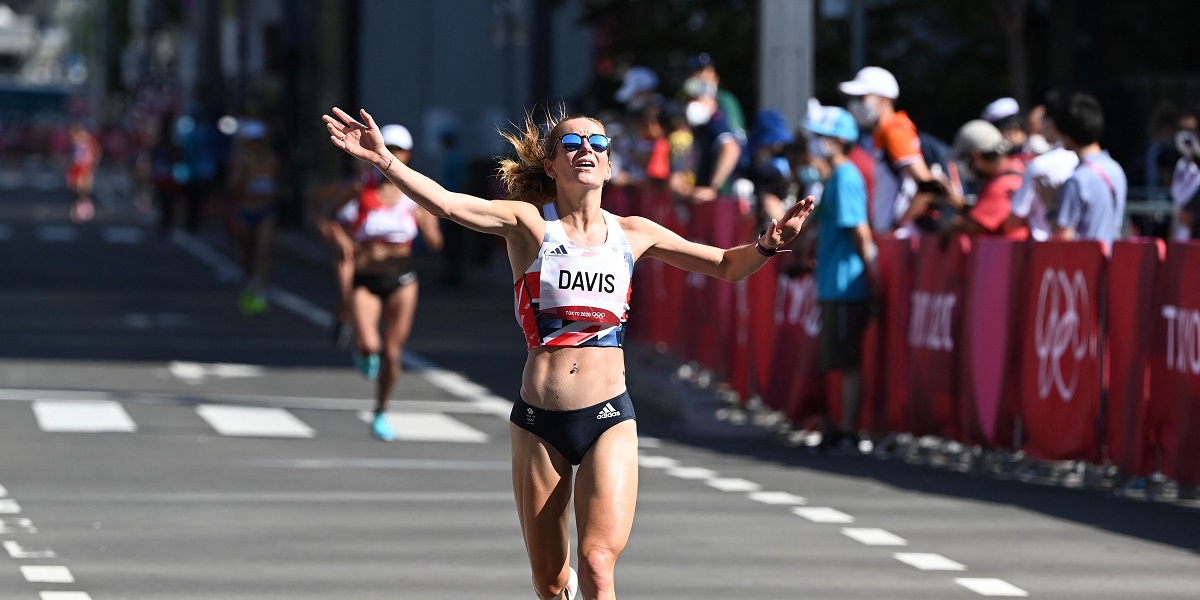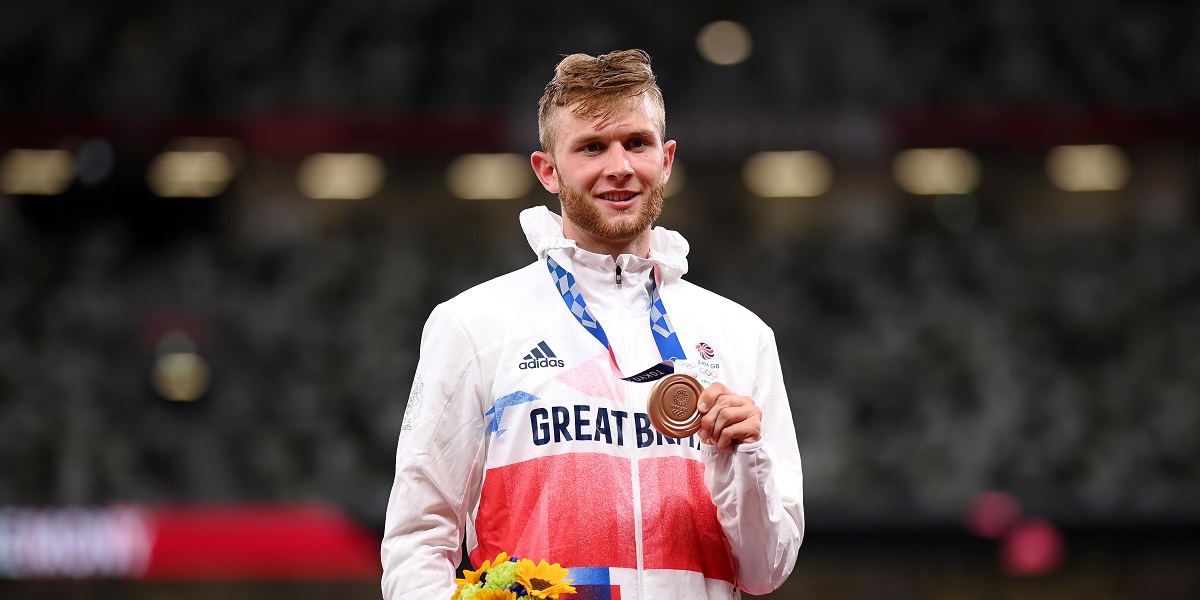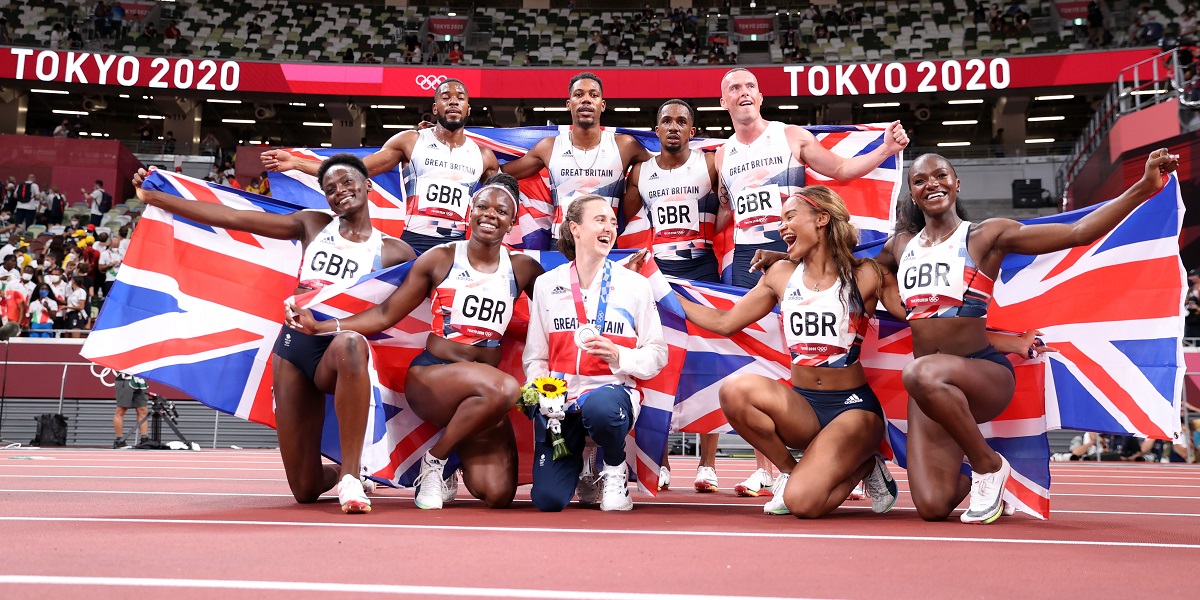
7th August 2021
TRIO BATTLE TOUGH CONDITIONS IN WOMEN'S MARATHON
Stephanie Davis made her way through the field to finish 39th and first out of the Team GB contingent on her Olympic women’s marathon debut in a sweltering race at Tokyo 2020.
The 30-year-old only ran her first marathon in 2018 but won the British trials at Kew Gardens earlier this year with a PB of 2:27:16 to book her spot on the plane to Japan to compete at the delayed Games.
Davis (coach: Phillip Kissi, club: Clapham Chasers) finished in 2:36:33 ahead of compatriots Steph Twell in 68th and Jess Piasecki who finished three spots further back.
Both Twell (Steve Vernon, Aldershot Farnham and District) and Piasecki (Robert Hawkins, Stockport) crossed the line in times of 2:53:26 and 2:55:39 respectively.
The women’s marathon gold medal went to Kenya’s Peres Jepchirchir who stopped the clock at 2:27:20 with the African nation securing a 1-2 as world record holder Brigid Kosgei took silver after finishing 16 seconds adrift of her teammate.
American Molly Seidel claimed bronze in just her third marathon ever after finishing ten seconds behind Kosgei – who ran over 13 minutes slower in testing conditions than when she broke Paula Radcliffe’s world record at the Chicago Marathon in 2019.
The marathon, along with the walking races, was moved to Sapporo, over 500 miles north of the Japanese capital, where temperatures are cooler in the summer but officials still had to bring the start time forward an hour to 6am local time due to concerns surrounding the heat.
Athletes had to contend with temperatures of 28°C and close to 80% humidity with a number of high-profile long-distance stars failing to finish the race, including Kenyan world champion Ruth Chepngetich, who pulled up after slipping off the leading group at the 30km mark.
Davis said: “The last 400m felt like the longest ever. My legs were like they were running in circles.
“I thought I started sensibly and I felt in control until 15km. I had in my mind I would assess things every few km and at 30km I thought I might be able to push on a bit.
“But you just can’t. I am so glad I paced the way I did early on, and I was really consistent after that.
“You can’t go out too fast. I stayed at the back of the pack, I watched them go and that was ok. I didn’t panic, stayed patient and I am an Olympian and I can’t believe it!”
Davis admitted the conditions were tough to deal with but was thankful for the earlier start despite initially having reservations about the early wake-up call.
“The conditions are so tough,” she added. “It is weird because until the last 4km I felt hot but before that I didn’t actually feel physically hot, but my body was obviously feeling it because my heart rate was going up a bit.
“I was maintaining the same pace but it took a lot more effort. You have to respect the marathon always and particularly in these conditions.
“In hindsight it [the earlier start] did please me, but at the time I thought, ‘Oh no I better get to bed and I’m only going to get six and a half hours sleep’.
“I didn’t sleep well and not as good as previous nights. It probably threw me a bit and I had to text everyone at home to tell them it was an hour earlier, but it was the right decision as it feels roasting even now.”
Twell, who stepped up to the marathon distance for her third Olympic Games having run in the 1500m at Beijing 2008 and the 5,000m at Rio 2016, said: “I had a problem with my foot.
“I was running with some neural pain the whole way through. I couldn’t find my rhythm very easily. I felt I was running with the brakes on, as I couldn’t fully connect in my neural pathway. I did so well finishing, and I am proud of that.”
The 31-year-old added: “It was a long, lonely race for me today and I really just had to embrace the atmosphere and get it under my belt.
“It is my first step up to the marathon at an Olympic Games, coming at it from a tough starting point being injured throughout lockdown. So, for me I just wanted to embrace it, as I know so many people would have loved to be in this position, and it would have been easy to drop out.
“But I knew that wasn’t what I’d worked for the whole build-up, with all the barriers I have overcome and the last one was to get to the finish line today.”









